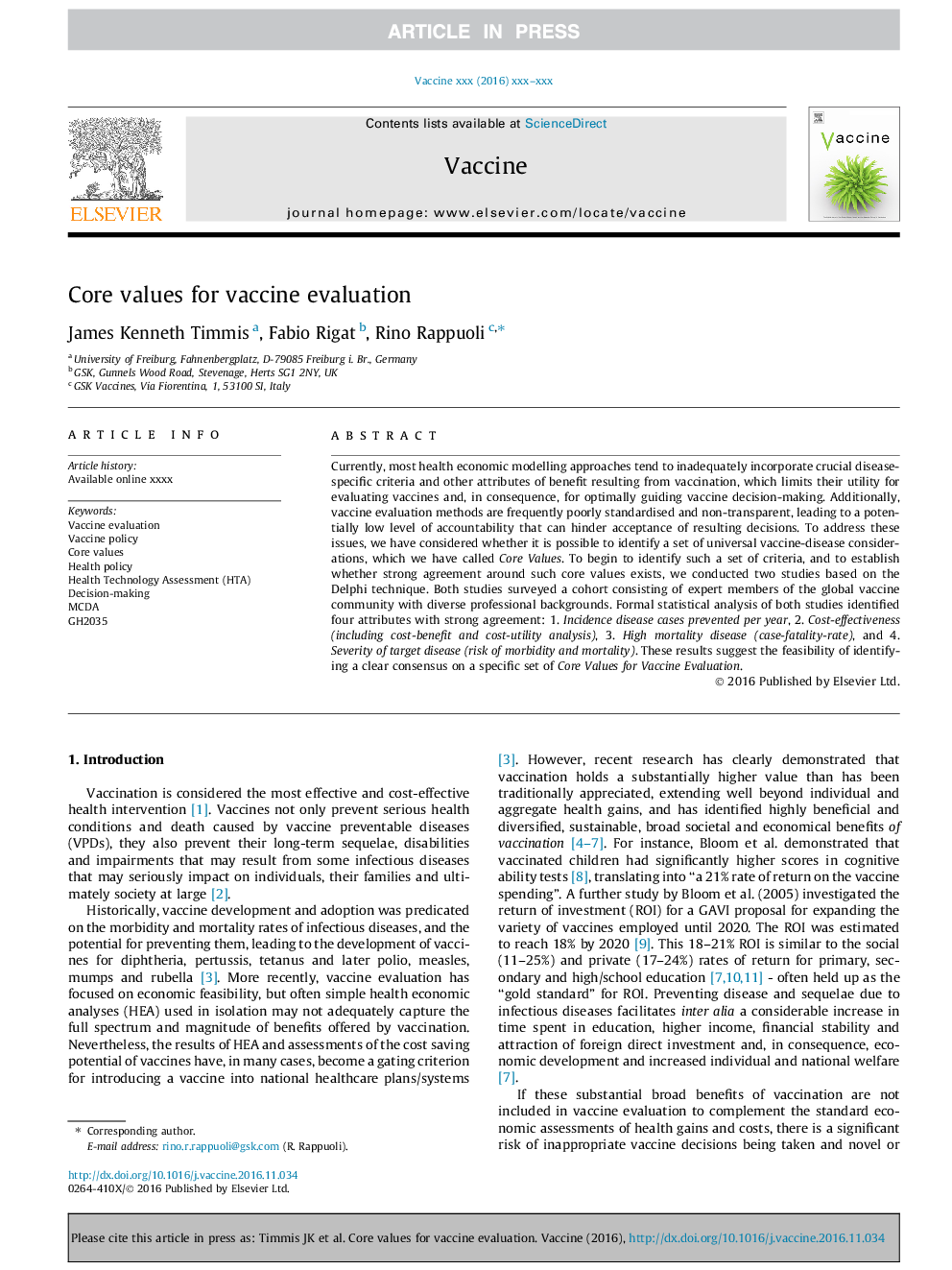| Article ID | Journal | Published Year | Pages | File Type |
|---|---|---|---|---|
| 5537241 | Vaccine | 2017 | 6 Pages |
Abstract
Currently, most health economic modelling approaches tend to inadequately incorporate crucial disease-specific criteria and other attributes of benefit resulting from vaccination, which limits their utility for evaluating vaccines and, in consequence, for optimally guiding vaccine decision-making. Additionally, vaccine evaluation methods are frequently poorly standardised and non-transparent, leading to a potentially low level of accountability that can hinder acceptance of resulting decisions. To address these issues, we have considered whether it is possible to identify a set of universal vaccine-disease considerations, which we have called Core Values. To begin to identify such a set of criteria, and to establish whether strong agreement around such core values exists, we conducted two studies based on the Delphi technique. Both studies surveyed a cohort consisting of expert members of the global vaccine community with diverse professional backgrounds. Formal statistical analysis of both studies identified four attributes with strong agreement: 1. Incidence disease cases prevented per year, 2. Cost-effectiveness (including cost-benefit and cost-utility analysis), 3. High mortality disease (case-fatality-rate), and 4. Severity of target disease (risk of morbidity and mortality). These results suggest the feasibility of identifying a clear consensus on a specific set of Core Values for Vaccine Evaluation.
Keywords
Related Topics
Life Sciences
Immunology and Microbiology
Immunology
Authors
James Kenneth Timmis, Fabio Rigat, Rino Rappuoli,
